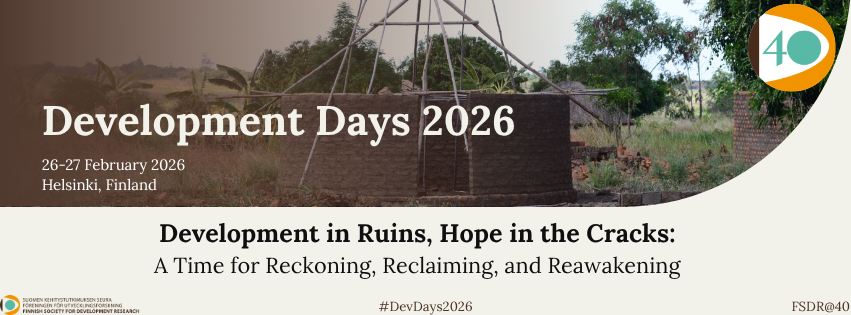Governing in the Ruins of Green Development: Neoliberal and/or Authoritarian Sustainability and the Cracks of Everyday Ecologies
Coordinators: Taru Salmenkari and Virginie Arantes
Abstract
This working group examines what happens when the dream of “green development” itself begins to produce ruins — ecological, social, and political. Building on previous exploration of how nature and climate are made governable, we turn to the contradictions of sustainability agendas that, while promising ecological renewal, often reproduce the logics of control, extraction, and inequality they claim to overcome.
When nature and climate are turned into subjects of governance, they are rendered measurable and manageable through indicators, infrastructures, and technologies — from carbon accounting and conservation apps to digital surveillance of ecosystems. Under authoritarian, technocratic or neoliberal regimes, these practices of “green governmentality” also reshape the relationship between power, expertise, and the everyday. The language of low-carbon transition, sustainable modernization, or ecological civilization becomes a tool of legitimation, yet it simultaneously generates new forms of uncertainty, dispossession, and resistance.
Focusing on cases of ecological transformation from global South and China, this panel explores tensions between neoliberal and/or authoritarian sustainability and everyday ecologies: the fragile spaces of care, adaptation, and negotiation that emerge in the cracks of green modernization. These micro-practices — from community participation to alternative knowledge systems — reveal how people inhabit, reinterpret, or subtly subvert official projects of ecological governance.
By bringing together scholars of political ecology, development studies, anthropology, and governance, the panel invites paper presentations for a dialogue on governing through the ruins of development. How are ecological crises mobilized to consolidate or contest political authority? What forms of hope, agency, and coexistence can be found in the interstices of green power? The working group will be held onsite. Full paper submission is not required. If you wish to submit a paper abstract (maximum 300 words) or have any questions about the working group, please send email to both taru.salmenkari@helsinki.fi and virginie.arantes@ulb.be.
Keywords: authoritarian sustainability; ecological civilization; post-development; political
ecology; everyday ecologies; ecomodernity.
